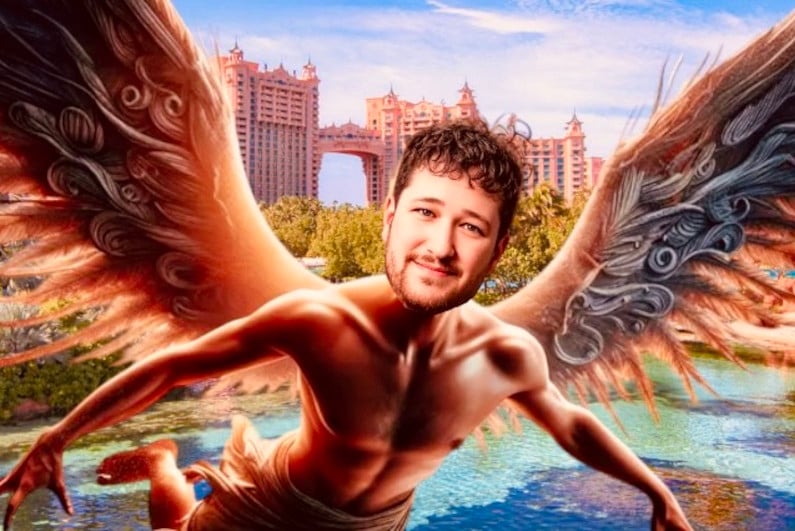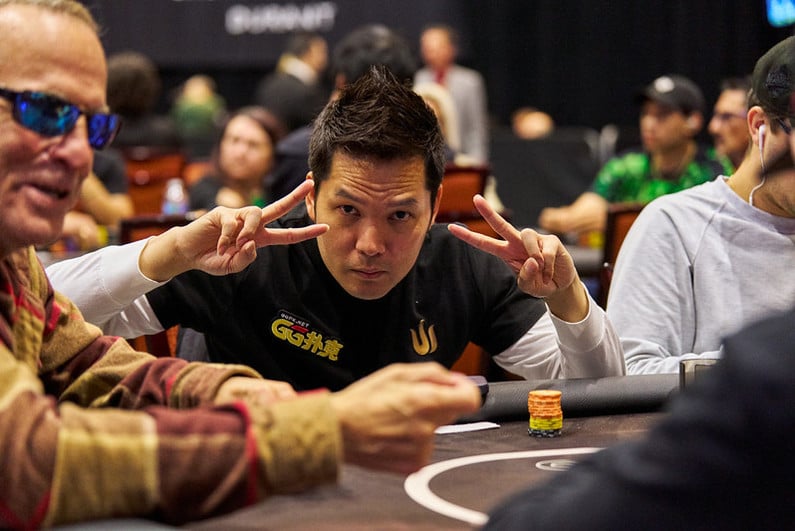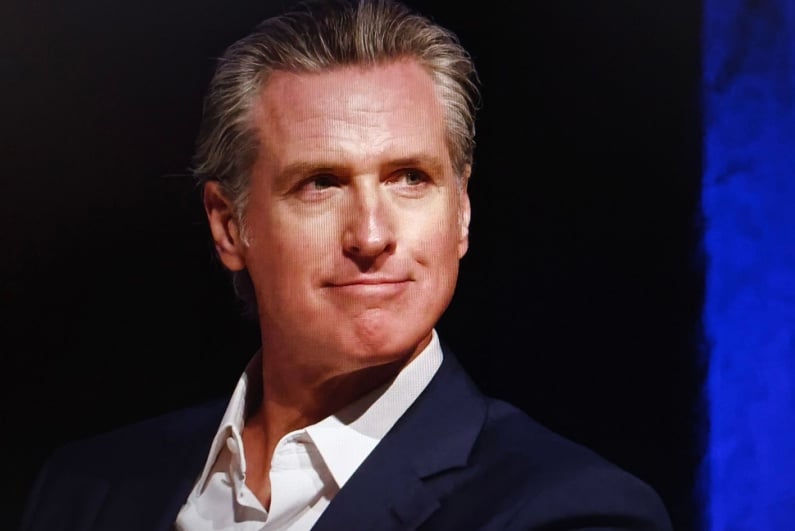Creatively bankrupt
When you’ve got the temerity to post an 882-word diatribe on how the poker community is creatively bankrupt, when you’ve got the gall to claim that your next project is going to be a game-changer in the space, when you have the audacity to declare that you’ve turned “poker sessions into cinematic experiences,” then you sure as hell better not deliver a four-hour snoozefest that exploits its subjects, putting words in their mouths when it suits your “narrative.” Yet that is exactly what Dustin Iannotti has done with “No Limit,” a poorly rendered mess of a docuseries that lacks conflict, drama, and a coherent premise.
met with mixed but mostly bad reviews
With a level of hubris that would have made Icarus blush, Iannotti promised something more important than Rounders, but since the show premiered on November 4, he has delivered six long-form WSOP Paradise advertisements that have been met with mixed but mostly bad reviews. After hitting a particular low with the vapidness of Episode 3, the show threatened to entertain in Episode 4. That was, until the presence of admitted cheater Ren Lin once again made one question the editorial choices made by the documentarians.
However, despite all the negative appraisals and plummeting viewing numbers, nothing has hurt the project and the reputation of its creator more than the maelstrom of controversy that blew through this weekend. As Iannotti and the WSOP were trying desperately to hype the final two episodes of their problematic co-production, accusations were made of deceitful editing via the use of an AI copycat voice to insert words that were never spoken by high stakes pro Alan Keating.
Frankenstein
Keating was featured on Episodes 5 and 6 of “No Limit,” which aired on Tuesday and Thursday of last week. On Friday evening, he took to social media to express concern at some inconsistencies in the show, moments which didn’t track with his recollections:
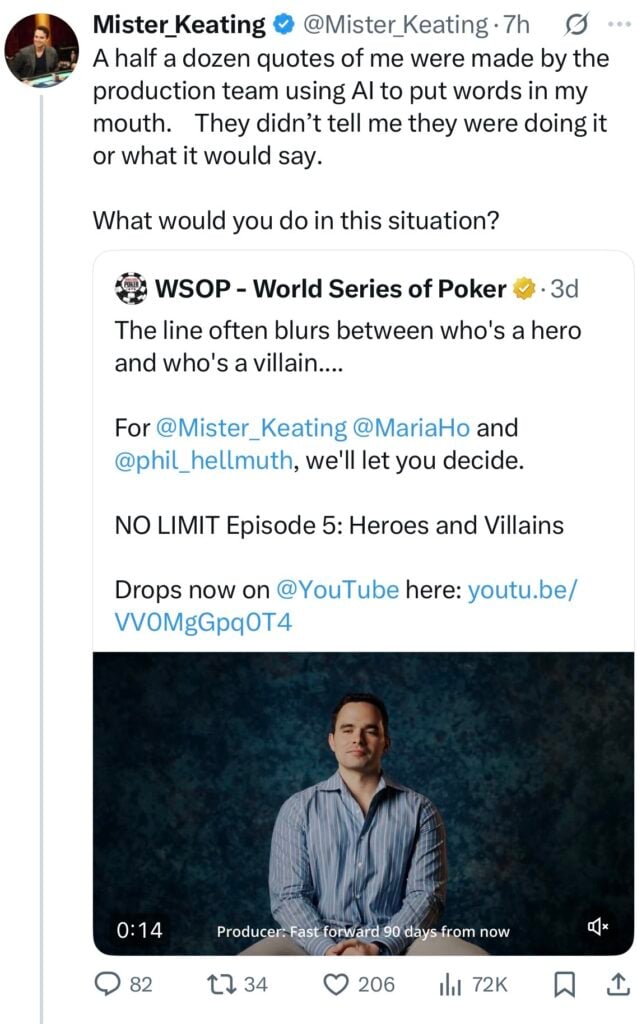
In a batch of now-vanished tweets, Iannotti owned up to using AI to mimic Keating’s voice, stitching together lines based on themes from an earlier interview:
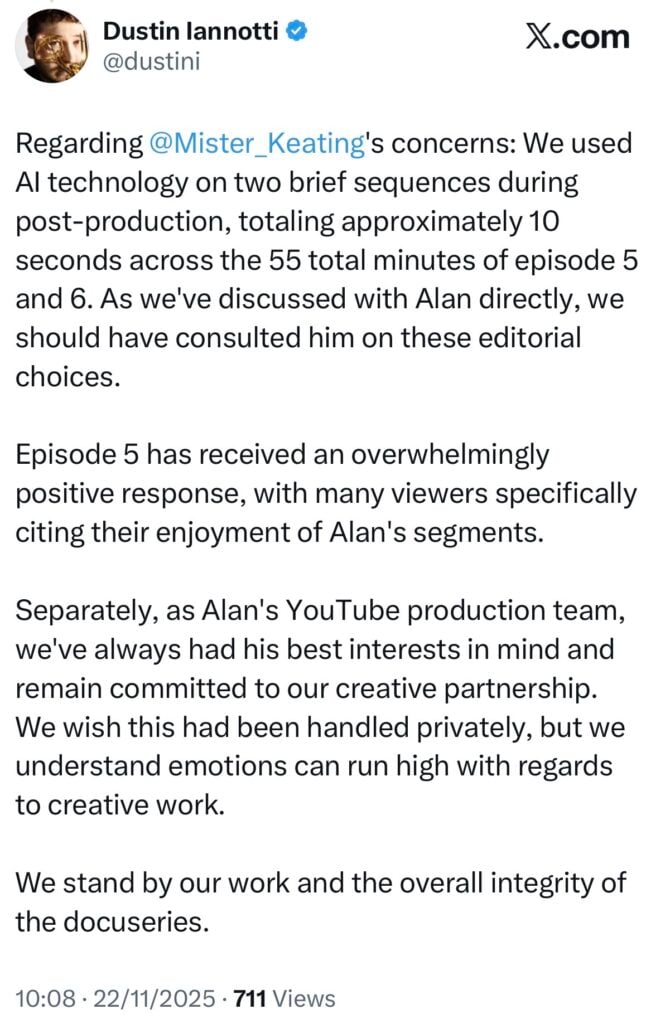
Whatever one thinks about cleaning up someone’s speech with the removal of an “emmm” or the addition of an “and,” the idea of Frankensteining two sentences together, bridged by a completely fabricated sentence in an AI voice, is far beyond The Pale. It is also very revealing that Iannotti thinks that his only error was failing to consult the subject. Totally blindsided, Keating was understandably bothered, a sentiment shared by poker player and Hollywood actress Jennifer Tilly:
Considering the matter from the point of view of the filmmaker, poker player, and production company head, KL Cleeton was damning in his assessment of what Iannotti has done:
“If you are such an incapable editor that you don’t have the skill to work with the footage at your disposal, that is a reflection of your inadequacies…The use of AI to fabricate interview responses, to literally put words in someone’s mouth that they never said, is not simply an editorial lapse. It is a grotesque violation of the most sacred principle in documentary and interview-based work: truth.”
Out of context
Complicating matters somewhat is the fact that Iannotti and his video production company Artisans on Fire are also the producers of Keating’s “Who Is Alan Keating” YouTube Channel. To say their relationship is strained right now might be an understatement. Complicating matters further would be if AI was used in any other part of the documentary, a question directly asked by PokerNews Managing Editor Will Shillibier.
No sooner had Iannotti strenuously denied that AI had been used elsewhere than Alex Keating (no relation to Alan Keating) spoke out about his own dissatisfaction, believing that a “fake voice” had been used for some of his parts.
Seemingly caught in an outright lie, Iannotti pushed back, claiming that the show’s editors had merely used “AI enhancement” on Alex Keating’s voice. He also defended the use of “editing things out of context,” calling it “standard practice.” Whether he sincerely believes that to be true or not, it does not appear to be an opinion shared by the WSOP, which issued the following statement on Sunday night.
No Limit
Credit to the WSOP for stepping in to do the right thing while Iannotti equivocated and prevaricated at every juncture, doubling down in the face of clear wrongdoing rather than issuing a mea culpa. The docuseries might be called “No Limit,” but that doesn’t mean that its creator should be unfettered from the truth.
massive breach of the trust we ask the people we interview to put in us”
Documentary subjects put their trust in producers and content creators to represent them accurately and fairly. To once again quote KL Cleeton:
“We already have the ability, with basic editing, to control how they are perceived. Going even further by creating clips that they didn’t say is inexcusable and a massive breach of the trust we ask the people we interview to put in us.”
There is perhaps a certain inevitability that the poster of that ridiculous AI-generated 882-word tirade to the poker masses, replete with short staccato sentences and emdashes, all the telemarks of ChatGPT-speak, would also use AI to cheat his subjects, the audience, and his commissioners. Now that Icarus’s waxy wings have melted before our very eyes, now that he has crashed down onto the rocks, I think the takeaway going forward is to view skeptically the hucksters and charlatans who would demean our collective contributions before selling us their snake oil.

